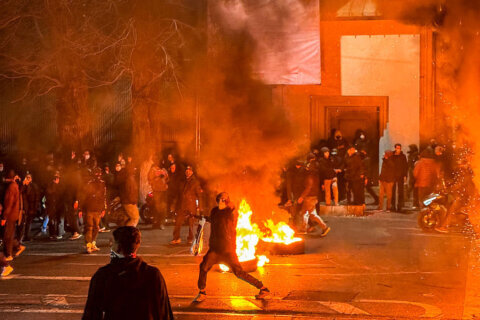
The National Oceanic and Atmospheric Administration (NOAA) is forecasting “an above-normal 2020 Atlantic hurricane season,” which all but guarantees an above-normal number of mass evacuations as well. Keeping evacuees six feet apart and furnished with the appropriate personal protective equipment (PPE), if a secondary disaster strikes during the COVID-19 pandemic, is expected to be a challenge.
NOAA’s Climate Prediction Center is forecasting a likely range of “13 to 19 named storms, including three to six Category 3, 4 or 5 storms with winds of 111 mph or higher.”
In preparation, the Federal Emergency Management Agency (FEMA) has released comprehensive guidance nationwide aimed at making sure government personnel overseeing evacuations observe social distancing guidelines and wear PPE, and that evacuees do the same.
Bob Jensen, a former acting director in the Office of External Affairs at FEMA, said “shelter status” is a major concern — “how and if they can be modified to help prevent the spread of the virus, and whether there are alternate locations for sheltering such as hotels, dorms or larger facilities.”
Those alternate locations are called “non-congregate shelters” — a type of accommodation where each person or household has living space that offers some level of privacy.
FEMA says in its guidance, “Regional Administrators will have delegated authority to approve requests for non-congregate sheltering for hurricane-specific disasters for the 2020 season.”
Jensen said that type of shelter is particularly important during the pandemic, because “They may need to isolate people to protect them rather than put them in one big area.”
Jensen said emergency managers around the country will need to examine other issues as they prepare.
“They will be reviewing staffing, to see how it has been and could be affected by COVID-19, and examining existing risks and hazards to see how a hurricane or other disaster might impact them.”
Evacuation plans have to be updated “to see what modifications are needed and how to allow more time for the evacuation of vulnerable populations, such as residents of assisted care facilities, the disabled and those without transportation,” Jensen said.
Emergency supply levels have to be replenished as well.
“The things that need to be thought about are, depending on the type of disaster that happens, how widespread it is and the density of the population if you have to evacuate people. We have to think about where you’re going to be evacuating them,” Jensen said.
FEMA is urging state and local jurisdictions to review their evacuation plans and “assess community demographics and identify areas facing high risk.”
The high-risk group includes those “under stay-at-home orders, at higher risk of serious complications from COVID-19, individuals with disabilities, and others with access and functional needs.”
While hurricanes are the focal point right now, other disasters, such as tornadoes, earthquakes, floods, wildfires and man-made catastrophes could severely strain authorities’ abilities to safely evacuate and protect civilians during the pandemic.
Jensen believes that during the pandemic, everyone facing a second disaster should be ready to evacuate early. And he suggests making sure a “go kit” is packed.
“You should have things like a certain amount of your medicines, a battery operated radio, a change of clothes.”
He suggested that kit should contain hand sanitizer and face masks.
- Sign up for WTOP alerts
- Latest coronavirus test results in DC, Maryland and Virginia
- Wolf Trap cancels summer concert season over coronavirus pandemic concerns
- Ben’s Chili Bowl on H Street reopening with takeout and delivery
- Coronavirus testing expands to 3 Maryland Walmart stores
- Coronavirus resources: Get and give help in DC, Maryland and Virginia
Looking for more information? D.C., Maryland and Virginia are each releasing more data every day. Visit their official sites here: Virginia | Maryland | D.C.








